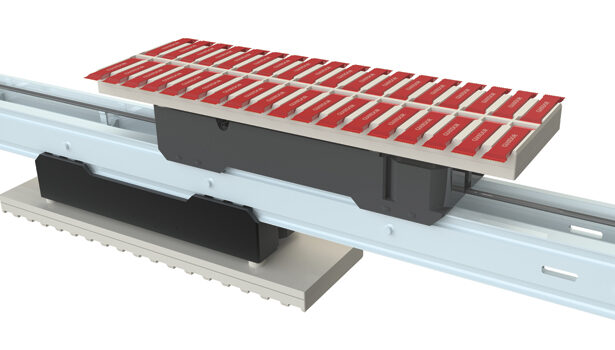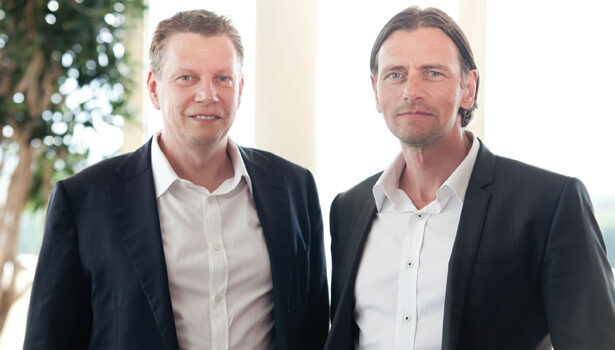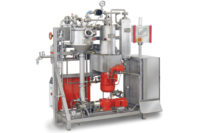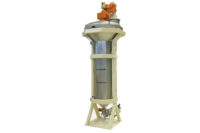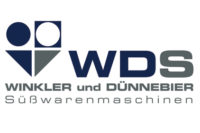In 2012 Ralf and Gerald Schubert were named chief executive officers by their father Gerhard Schubert. Gerald Schubert talks in this interview how they are going to continue the family tradition of leading through innovation.
How do you feel about your new role?
My role hasn’t changed considerably since becoming ceo. My brother Ralf and I were responsible for operative business even before our time as ceos. We’re not a small company anymore, but our organization still corresponds to a typical family company with its flat hierarchical structure, as opposed to a powerful hierarchy. It’s a system that values the deeds and successes of individuals more than their title.
How do you plan to take the company forward?
Schubert has very successfully developed itself as a pioneer in top-loading packaging machine engineering. The innovative power of our company remains strong, and the money it has earned will continue to be used to optimize existing products and develop new ones. With approximately 7 to 8% of turnover flowing back into product optimization and development, we are considerably above the industry average.
Will you do anything differently from your father?
The way in which our father developed the company made, and continues to make, him one of the most successful in the industry. We were by his side for more than 20 years and have shaped the company together with him. So rather than new management coming in, we are simply complementing one another in a three-man team where we assume and divide the responsibility.
Since Schubert is heading toward the 1,000 employee mark, the organization will change in the way that senior employees will assume more responsibility in their subdivisions. We have the luxury of having the world’s best packaging experts among our ranks, which is why we support and promote the independence of individual employees at the company. This gives us the freedom to make strategic decisions, yet we remain closely involved in day-to-day business.
What major trends have you noticed in the confectionery market and how do you plan to capitalize on these?
The confectionery industry seems to continually require more flexibility. Product life cycles are becoming shorter, and the number of different packaging variants is increasing. Requirements with regard to flexibility and faster size change times increase along with this, and that’s precisely where our philosophy provides the best answer: A simple mechanical system, intelligent control and changeable tools. Cost pressure in the confectionery industry is also on the rise. Companies in the industry can no longer afford cheap machines if they want to survive over the long term.
What new developments does Schubert have in the pipeline?
Fully automatic tool changing, which we presented last year for the first time, is being developed further. The world’s first packaging line with automatic tool changing has been delivered at the end of November. The Schubert scanner, which already represents the best system in the world today, will be replaced with a new generation in 2013. It enables us not only to know the position, shape and surface of products, but also their volume structure.
The Schubert control hardware is currently being redesigned and will be introduced to the market in 2013. This new generation of controllers is simpler, has fewer modules and offers greater computational capacity.
The Transmodule is being redesigned to be even smaller, faster and more robust. A new 3-axis robot is currently being developed, and we are in the patent application phase for the development of the latest generation of deep-drawing machines and further development of Schubert filling technology.
We’re also working full-throttle to develop the Schubert Line Cockpit as an information analysis and optimization tool. As you can see, we’re certainly not getting bored.
What are the biggest challenges facing Schubert in the near future?
Organic growth limits development speed. A lack of specialist personnel is looming, although we are preparing 50 apprentices for future work at the company through a 3-year training program. Strategic partnerships, such as those with Pago and Fuji, will also be expanded in other areas in the future to satisfy our ambitions for growth. We are working on the future of our company with an additional assembly hall, which will be complete in 2014 to double the existing assembly floor space.
Schubert at ProSweets
At the Gerhard Schubert GmbH booth, visitors can view a picker line for chocolate bars. Six TLM-F4 robots pick up 600 bars per minute from the product belt and place them onto the transmodule in non-stop operation.
Ranging from chocolate bars, cookies to pralines and from bottles, tubes, sachets and cans, the line processes any product and packages them in any conceivable packing pattern. This flexibility is only possible when using the TLM transmodule. Transmodules are intelligent vehicles which are driven by a servomotor and carry out numerous transport tasks.
Schubert transmodules have been integrated in packaging machines with great success since September 2008. In the meantime, transmodules are equipped with a path control and can be used for both, continuous operation and for a combination of cyclical and continuous movement. Therefore, they especially lend themselves to be used as a transport system for picker lines.
Flexibility results when simple mechanical systems, intelligent control systems and interchangeable tools are used. The transmodule is the first transport robot worldwide and was developed based on these criteria. The interchangeable tool is a transport plate, which was designed based on the product’s requirements. When changing the size, it is docked onto the transmodule in just seconds, either manually or fully automatically, as desired. A vacuum function is integrated to fix the product or packaging being transported on the transmodule.
Thanks to the transmodule, the flexibility of the packaging machines has increased to a degree that a bright future can already be predicted for the transmodule. With the transmodule, redundancy also becomes a part of packaging machines and will make the machines significantly simpler and clearer in the future.
In addition, visitors will be able to view many more extremely flexible packaging displayed on a three-meter-wide video wall at the booth.
At ProSweets, visit us at Hall 10.1, booth F020/G029 or go to www.gerhard-schubert.com
